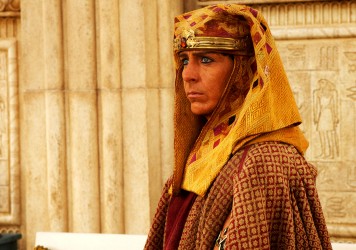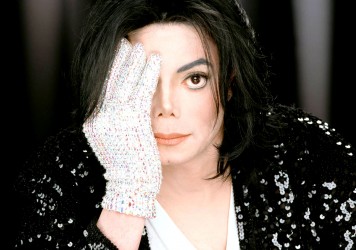Underachieving rather than awful, Alex Proyas’ cornball, CG-driven adventure is tiresomely mad.
What could you buy with $140 million? Let’s not get straight into list-making, but the answer is a whole bunch of cool stuff. It could set you up nicely for a few lifetimes of golden jump-jets filled with caviar and blinis. In the world of CG-driven blockbuster movies, though, this is chump change, found in the arm crevice of a battered sofa with the aid of a mangled coat hanger. This was the reported price-tag of Alex Proyas’ maligned Gods of Egypt, and that was before additional marketing costs were factored in. It would be a low blow to suggest that this was not money well spent, even if it’s true. Yet the problem with the film isn’t that it’s awful, it’s more that the levels of ambition far outweigh its physical resources.
It’s 2016, and if your bizarre, high-camp historically-inclined space opera (actually, it’s more of a space chorus line) doesn’t look the bee’s knees, then you’re in major trouble. There’s a sequence in which a henchman has his leg cut off by Nikolaj Coster-Waldau’s one-eyed earthly god, Horus, and it looks like an effect that was dredged up from the early ’90s. It’s the type of visual that the makers of The Lawnmower Man might have seen and thought, ‘Nah, that’s way too cruddy for us.’ Sorry for all the cheap metaphors, but this is a Lotus chassis loaded up with a 50cc go-kart engine.
The fact that the film looks and feels unforgivably shoddy isn’t really an issue. Many great films from classic-era Hollywood were made with minuscule budgets with the aim of making back the production costs as swiftly as possible. And more often than not, a great idea shines through the grimy outer coating. But the problem is that audiences now have itchy trigger fingers when it comes to expressing their aesthetic displeasure. And there are easy access outlets for them to do so. A standard has been set for computer generated imagery, and anything that dips below that standard will be open for abuse. It’s a shame, because you could argue that Proyas was intending to make an eccentric B-movie which punches far above its weight. In doing so, he left himself wide open to easy criticism by those who are looking for reasons to gripe.
We are introduced to goody-goody goon Bek (Brenton Thwaites) who is the human thief whose wily efforts help to topple the destructive reign of Gerard Butler’s megalomaniac god, Set. Mangling ancient Egyptian history to the point where the only thing left is the names and the broad iconography, the film offers the usual saccharine cocktail of trials, traps, corny exposition and random-ass space monsters, and to be honest, it’s a lot more fun than something like the comparable/execrable Wrath of the Titans.
There are some very obvious references to David Lynch’s Dune and Richard Fleischer’s classic swashbuckler, The Vikings, to give you some idea of its artistic remit. The gods are physically larger than humans, but this fact has no bearing on the plot whatsoever. It must’ve been a pain for the continuity. And they also bleed gold, which… well, what more is there to say on that matter? Also of note is the fact that all female characters must be attired in clothing (the term seems inadequate to describe the lace bikinis they are actually wearing) which allows the entire cleavage to remain visible from all angles, which seems highly impractical considering the epic scale of their mission. Maybe it’s these plunging necklines where the makers cut back on the budget?
Published 14 Jun 2016
Okay, so we were fans of Alex Proyas’ previous, Knowing.
Everything feels half-cocked, from the naff dialogue to the bargain basement visual effects.
Dazzling in the moment, but instantly forgettable.

The trailer for Gods of Egypt suggests Hollywood is in no rush to break one of its most repellent habits.

By Ashley Clark
The news that Joseph Fiennes, a white British actor, will play the King of Pop is as perplexing as it is insulting.

Films like Gods of Egypt and the #RumiWasntWhite backlash speak volumes about Hollywood’s whitewashing culture.